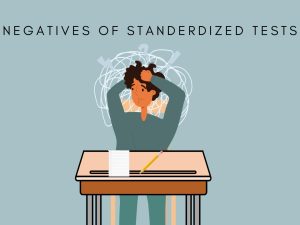Sleep Deprivation: the silent conflict high school students are battling against
Senior Amani Bushiri schedules time for homework with her already packed schedule.
December 5, 2018
In 2018, America is seeing a generation of stressed, tired adolescents who are being asked to juggle college applications, grades, sports, jobs, clubs, family and active social lives. With all of this stress, are teenagers even achieving enough sleep?
There was a clear dilemma with the correlation between students’ commitments and losing valuable sleep that seems to impact Wakefield High School’s attendees and teachers.
“Kids have too many things to do,” Advanced Placement Psychology teacher, Steven Holcomb, said. “With hard classes, part-time jobs, sports, clubs, they want to go out with their friends and do social things. There are too many things and not enough time.”
High school students are suffering at the hands of something that, in American society, is not taught to be as important as the many other expectations that are held. Teenagers in America observe future generations, especially when parents work over ten-hour days. Long work days with little family time and little sleep are extremely common, distinctly for families where parents work multiple jobs and/or the teenagers of the house have to contribute to the bills through finding jobs of their own.
The top students are expected to achieve stellar grades, active social lives, many volunteer hours, membership and leadership positions in clubs, participation in school sports and part-time employment. Junior Nidhi Rane, participates in nine clubs.
“I am currently in AP Environmental Science, AP Psychology, and AP Calculus. Next semester I’ll be taking AP Calculus BC, AP U.S. History, and then AP English,” Rane said. “I spend about six to seven hours on homework daily.” She gets about four hours of sleep every night.
Senior Amani Bushiri actively participates in seven clubs, as well as doing about twelve hours for theater weekly.
“Right now, I’m in AP English four and AP Psych,” Bushiri said. “Recently… I spend about two and a half hours on homework every night.” When asked how many hours of sleep she got a night, she said six to six and a half.
Insufficient quantities of sleep have many negative impacts on high school students.
“Changes in mood, changes in cognition, detrimental to memory, changes in metabolism so your eating patterns go off, and it can cause depression,” Holcomb said.
Wakefield High School counselor, Melissa Ansbacher, weighed in about what she professionally believed one of the biggest causes for lack of sleep among not just teenagers, but adults as well.
“At least in American society, there is a pressure to always be doing something, work harder, be better, have more. There is a societal pressure and a lot of expectations,” Ansbacher said.
Poor amounts of sleep are a definite issue for all generations. High school students who have to prove that they are high achievers, due to the strong stigma of a mandatory higher education, are pressured to push themselves too hard and prioritize grades over health. This is an issue that must be addressed by high education institutions, teachers, parents, and students.
“Not procrastinating and budgeting time better, instead of getting out of school and saying ‘I’ll do my homework later’, literally saying ‘I’ll do it from five to seven’,” Holcomb suggested to students who are having problems efficiently using the hours of the day.









